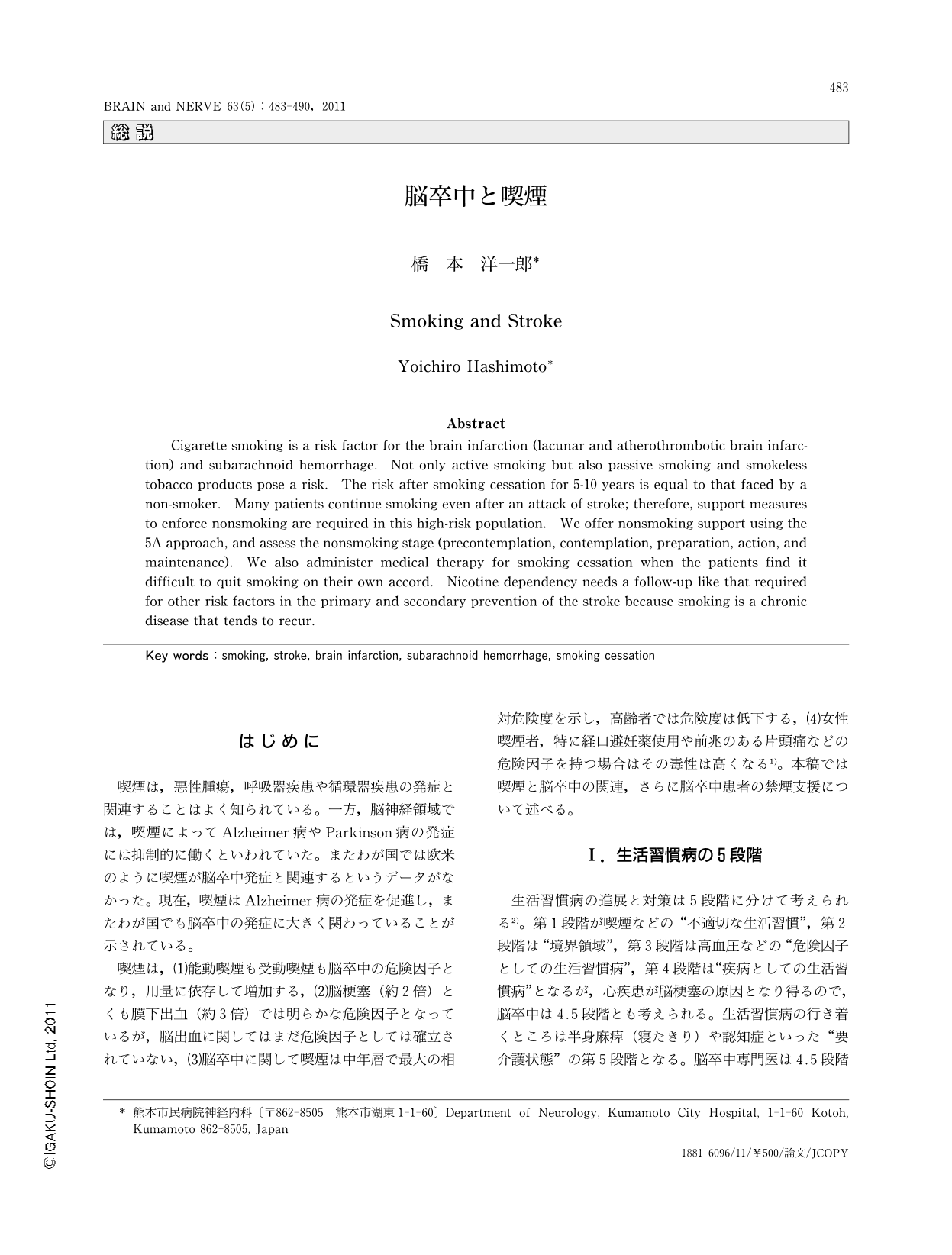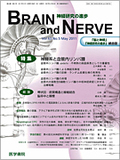Japanese
English
- 有料閲覧
- Abstract 文献概要
- 1ページ目 Look Inside
- 参考文献 Reference
はじめに
喫煙は,悪性腫瘍,呼吸器疾患や循環器疾患の発症と関連することはよく知られている。一方,脳神経領域では,喫煙によってAlzheimer病やParkinson病の発症には抑制的に働くといわれていた。またわが国では欧米のように喫煙が脳卒中発症と関連するというデータがなかった。現在,喫煙はAlzheimer病の発症を促進し,またわが国でも脳卒中の発症に大きく関わっていることが示されている。
喫煙は,(1)能動喫煙も受動喫煙も脳卒中の危険因子となり,用量に依存して増加する,(2)脳梗塞(約2倍)とくも膜下出血(約3倍)では明らかな危険因子となっているが,脳出血に関してはまだ危険因子としては確立されていない,(3)脳卒中に関して喫煙は中年層で最大の相対危険度を示し,高齢者では危険度は低下する,(4)女性喫煙者,特に経口避妊薬使用や前兆のある片頭痛などの危険因子を持つ場合はその毒性は高くなる1)。本稿では喫煙と脳卒中の関連,さらに脳卒中患者の禁煙支援について述べる。
Abstract
Cigarette smoking is a risk factor for the brain infarction (lacunar and atherothrombotic brain infarction) and subarachnoid hemorrhage. Not only active smoking but also passive smoking and smokeless tobacco products pose a risk. The risk after smoking cessation for 5-10 years is equal to that faced by a non-smoker. Many patients continue smoking even after an attack of stroke; therefore,support measures to enforce nonsmoking are required in this high-risk population. We offer nonsmoking support using the 5A approach,and assess the nonsmoking stage (precontemplation,contemplation,preparation,action,and maintenance). We also administer medical therapy for smoking cessation when the patients find it difficult to quit smoking on their own accord. Nicotine dependency needs a follow-up like that required for other risk factors in the primary and secondary prevention of the stroke because smoking is a chronic disease that tends to recur.

Copyright © 2011, Igaku-Shoin Ltd. All rights reserved.


